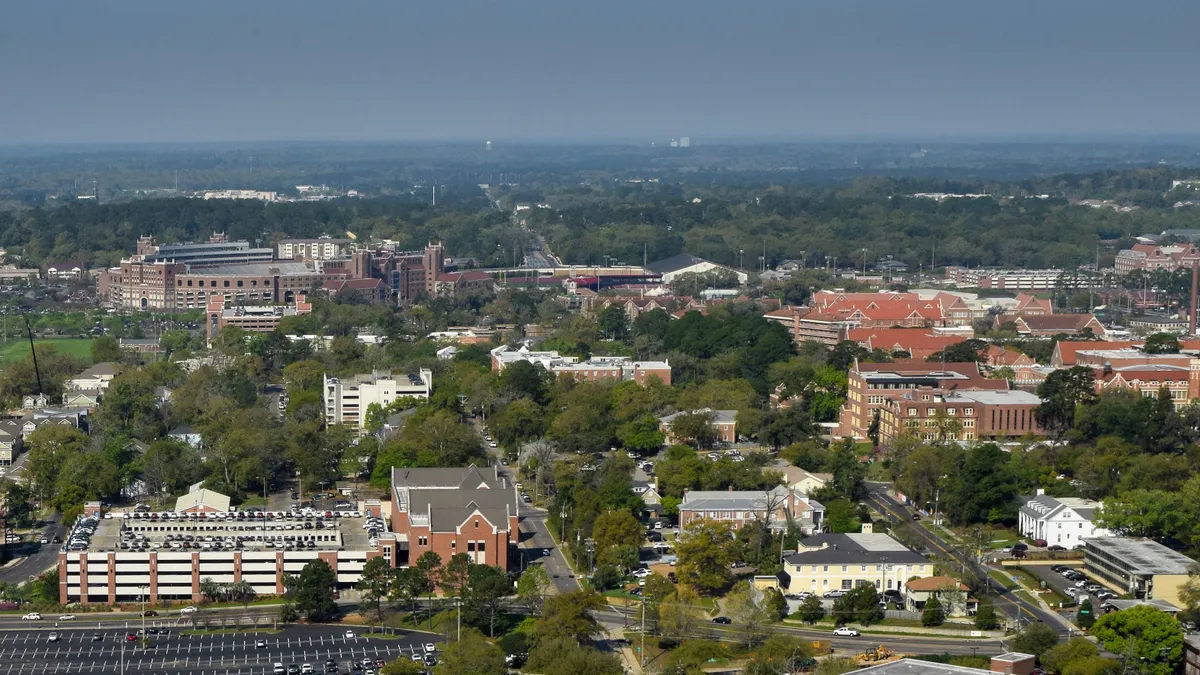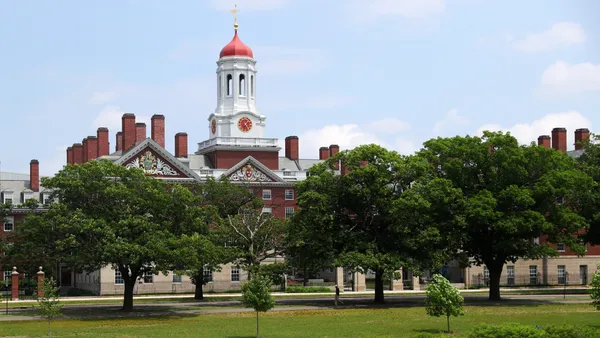Dive Brief:
- Harvard University's holistic admissions policies will go under the microscope beginning today in Boston as a trial to determine whether it discriminates against Asian-American students gets underway.
- Plaintiffs allege the university set quotas for Asian-American students and ranked them lower on personal criteria, despite having higher test scores. They are seeking to ban consideration of race in Harvard's admissions, which the university says would nearly halve the number of students from underrepresented minority groups, The Wall Street Journal reported.
- The case will likely reach the Supreme Court, which has upheld affirmative action in higher education in a series of landmark decisions since 1978. It is expected to draw back the curtain on other factors, too, such as student-athlete and legacy admissions.
Dive Insight:
The lawsuit against Harvard is brought by the same conservative strategist who queued up the last Supreme Court challenge against affirmative action in higher education. (The group, Students for Fair Admissions, is also behind an affirmative action lawsuit against the University of North Carolina at Chapel Hill.)
In 2016, the court again heard the case of Abigail Fisher, a white woman challenging her rejection from the University of Texas at Austin, which used race-conscious admissions for students not admitted via the state's Top Ten Percent Plan. The court ruled in favor of UT at Austin, saying the university proved racial diversity was imperative to the educational experience and that other race-neutral alternatives weren't sufficient.
Harvard will face similar scrutiny, but at a time when the federal government wants to get rid of the policy. This summer, the Trump administration rolled back Obama-era guidance encouraging the use of race in admissions, with the required scrutiny. Several colleges have pushed back on the move. The administration is also reviewing claims of discrimination against Asian-American students by Harvard, which the Obama administration previously dismissed, and is investigating similar allegations against Yale University. Plus, with Associate Justice Brett Kavanaugh now on the bench, the Supreme Court has a conservative majority that's likely to accept a challenge to affirmative action.
In August, the Justice Department filed a statement of interest in support of plaintiffs in the Harvard case, saying the university hasn't done enough to explain how and why it is considering race. Meanwhile, several top university presidents and scholars and social scientists have filed briefs with the court on behalf of Harvard.
A significant share of highly selective colleges and universities consider race as part of their admissions criteria. In 2015, the American Council on Education (ACE) polled 338 nonprofit four-year colleges and found that six in 10 colleges admitting fewer than 40 percent of applicants consider race as a factor in admissions. With the case against Harvard underway and others like it in the pipeline, those colleges should document their processes and be ready to explain, legal scholars say.












